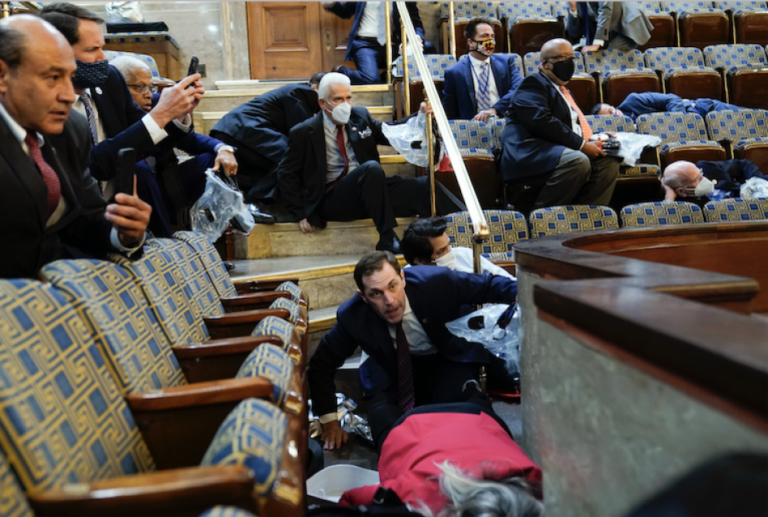The United States House Select Committee on the January 6 Attack has become a focal point in the ongoing discourse surrounding the events of that day. Established to investigate the circumstances leading to the attack on the U.S. Capitol, this committee has aimed to provide accountability and insight into the factors that allowed such an unprecedented event to unfold. As the committee concludes its work, the findings are shaping the narrative of political accountability and democratic integrity in the U.S.
What is the purpose of the United States House Select Committee on the January 6 Attack?
The primary aim of the committee is to investigate the facts and circumstances surrounding the January 6, 2021 attack on the Capitol, allowing for a better understanding of the security failures, the roles of various groups involved, and the influence of political rhetoric in inciting violence.
Formation and Structure of the Committee
The House Select Committee was officially formed in July 2021, following partisan disagreements regarding the establishment of a bipartisan commission. Composed of nine members, including seven Democrats and two Republicans, the committee has operated under the leadership of Chairman Bennie Thompson.
Membership Breakdown
| Member | Party | Role |
|---|---|---|
| Bennie Thompson | Democrat | Chair |
| Liz Cheney | Republican | Vice Chair |
| Adam Schiff | Democrat | Member |
| Jamie Raskin | Democrat | Member |
| Pete Aguilar | Democrat | Member |
| Stephanie Murphy | Democrat | Member |
| Elaine Luria | Democrat | Member |
| Adam Kinzinger | Republican | Member |
| Rep. Abigail Spanberger | Democrat | Member |
Key Findings and Testimonies
Throughout its investigations, the committee has interviewed more than 1,000 individuals and reviewed over 125,000 documents. The findings spotlight various aspects, including the buildup to the attack, the response from law enforcement agencies, and the roles played by various political figures.
Insights from Testimonies
Testimonies from key figures, including law enforcement officials and advisors to former President Trump, revealed critical failures in responding to the rioters. For instance, Capitol Police leadership faced scrutiny for underestimating the potential for violence, despite prior intelligence reports indicating the likelihood of unrest.
Notable Quotes from Testimonies
- Former Capitol Police Chief Steven Sund: “The intelligence we received did not match the reality we faced on January 6.”
- Former President Trump’s Chief of Staff Mark Meadows: “We had a chaotic moment that day, and decisions were made in real-time without a clear understanding of the consequences.”
Legislative and Legal Outcomes
The committee’s findings have spurred discussions on legislative reforms aimed at preventing similar events in the future. Key recommendations include:
- Revising Security Protocols: Enhanced procedures for intelligence sharing among federal, state, and local law enforcement agencies.
- Digital Accountability: Implementing stricter regulations on social media platforms regarding the spread of misinformation that can incite violence.
Legislative Proposals
As a consequence of the findings, there have been multiple proposed legislative measures aimed at improving the security framework of federal buildings and establishing clearer guidelines for law enforcement responses during civil unrest.
| Proposed Legislation | Description | Status |
|---|---|---|
| Capitol Security Improvement Act | Aims to enhance security measures at the Capitol | Pending in Congress |
| Digital Accountability Act | Stricter regulations on social media content | Introduced |
Public Response and Implications
The January 6 Committee’s work has received mixed reactions from the public. Some view it as a critical step toward accountability, while others criticize it as a politically motivated initiative. Polls indicate that public perception varies considerably along partisan lines.
Recent Polling Data
| Polling Organization | Percentage of Support for the Committee | Percentage of Opposition |
|---|---|---|
| Gallup | 55% | 40% |
| YouGov | 60% | 35% |
| Pew Research Center | 50% | 45% |
Future of the Committee and Ongoing Investigations
Though the committee has concluded its hearings, the broader implications of its findings will continue to resonate. Law enforcement agencies are scrutinizing their preparedness for future protests, while political leaders are reflecting on the role of rhetoric in public discourse.
Upcoming Initiatives
Following the committee’s recommendations, expect new initiatives aimed at bridging the gap between political leadership and grassroots movements. These initiatives may include community dialogues aimed at fostering understanding across political divides.
Conclusion
The United States House Select Committee on the January 6 Attack has played a pivotal role in shaping the narrative surrounding that day’s events. Its comprehensive investigation highlights the need for accountability and reform in American democracy. As the nation reflects on these findings, it remains crucial to address the systemic issues uncovered during the inquiry, ensuring that such an attack does not happen again.
As the political landscape shifts and the implications of January 6 continue to unfold, the committee’s findings may influence the upcoming elections and the broader discourse on democracy and governance in the United States.
